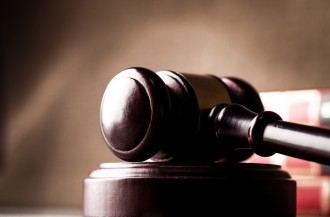
July 22, 2020
PTAB is not Limited to § 102 and § 103 when Reviewing Amended Claims in IPR
Bottom Line Up Front:
The Federal Circuit concluded that the PTAB can consider § 101 when considering amended or substitute claims in an IPR (and no doubt § 112 as well).
Uniloc 2017 LLC v. Hulu, LLC:
In Uniloc 2017 LLC v. Hulu, LLC, [2019-1686] (July 22, 2020) the Federal Circuit affirmed the PTAB’s denial of Uniloc 2017’s motion to amend on the grounds that the substitute claims were unpatentable under 35 USC 101.
During an IPR, a patent owner may file one motion to amend the patent, canceling any challenged patent claim, and propose a reasonable number of substitute claims for each challenged claim. § 316(d)(1). At the conclusion of the IPR, the Director will issue a certificate incorporating any new or amended claim determined to be patentable into the patent. § 318(b).
In its Final Written Decision, the PTAB — in addition to explaining why the challenged original claims were unpatentable — denied Uniloc’s Motion to Amend the claims, concluding that Hulu had shown by a preponderance of the evidence that the Substitute Claims are directed to non-statutory subject matter under 35 U.S.C. § 101.
Ineligibility was the sole ground on which the PTAB denied the motion to amend.
Rejecting the argument that the case was moot, the Federal Circuit considered whether the PTAB had the authority to consider § 101 eligibility for proposed substitute claims, and concluded that the PTAB was authorized by statute to assess Uniloc’s proposed Substitute Claims for eligibility under § 101 and, finding the claims ineligible, to deny the motion to amend.
Uniloc argued that the PTAB was limited in its review of proposed substitute claims to anticipation or obviousness, as provided by § 311(b). The Federal Circuit, however, found that the PTAB correctly concluded that it is not limited by § 311(b) in its review of proposed substitute claims in an
IPR, and that it may consider § 101 eligibility.
The Federal Circuit said that this determination was supported by the text, structure, and history of the IPR Statutes, which indicate Congress’s unambiguous intent to permit the PTAB to review proposed substitute claims more broadly than those bases provided in § 311(b).
The Federal Circuit said that the IPR Statutes plainly and repeatedly require the PTAB to determine the “patentability” of proposed substitute claims. The Federal Circuit said that Congress did not intend § 311 to constrain the PTAB’s review of proposed substitute claims to anticipation and obviousness, pursuant to § 102 and § 103, because § 311 is confined to the review of existing patent claims, not proposed ones. The Federal Circuit said that the structure and legislative history of the IPR Statutes support this conclusion, as section 311 applies to the petition phase of the proceedings, and not to a separate adjudication-stage provision, such as § 316. Finally, the Federal Circuit found support in the IPR statute’s legislative history.



































